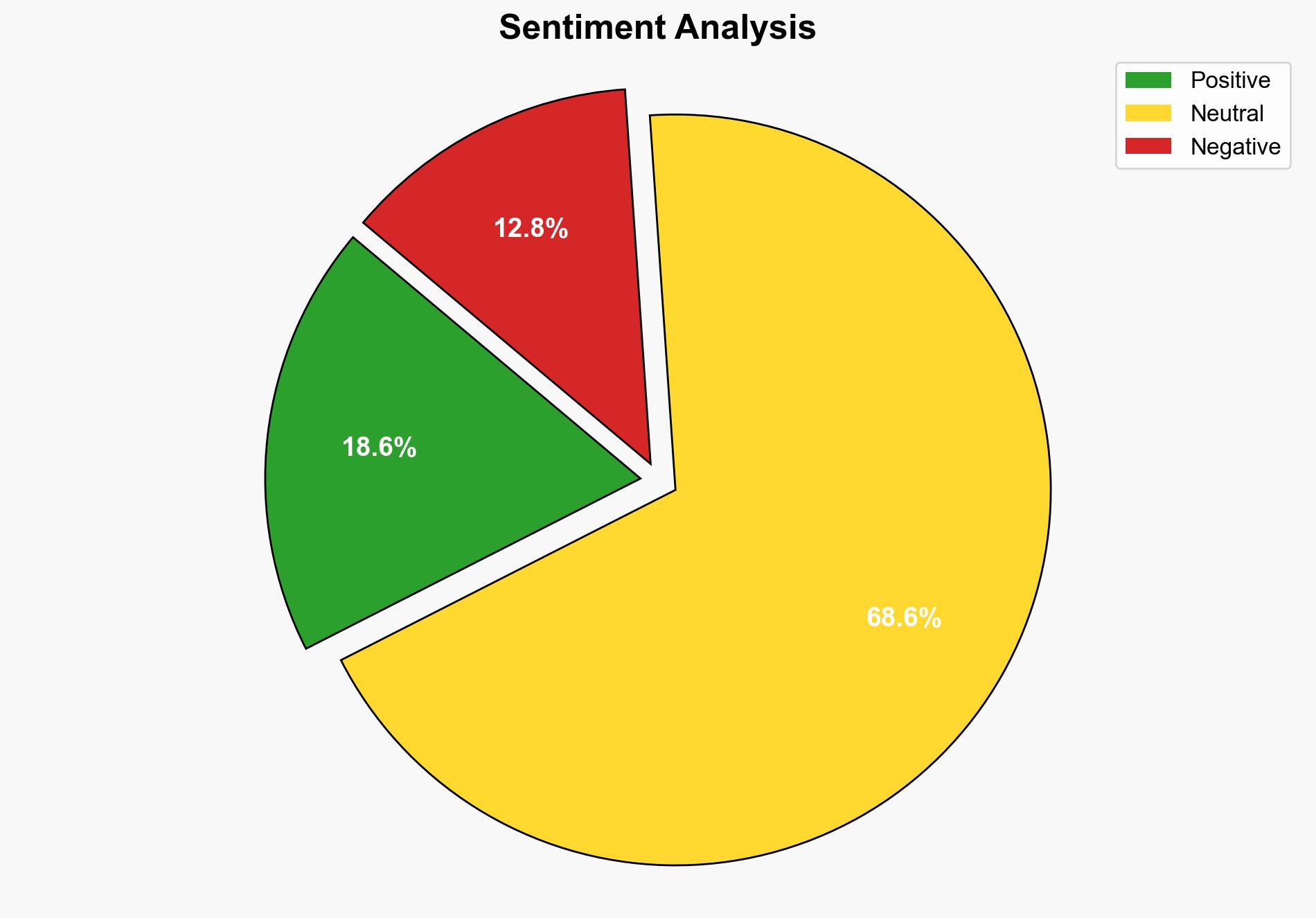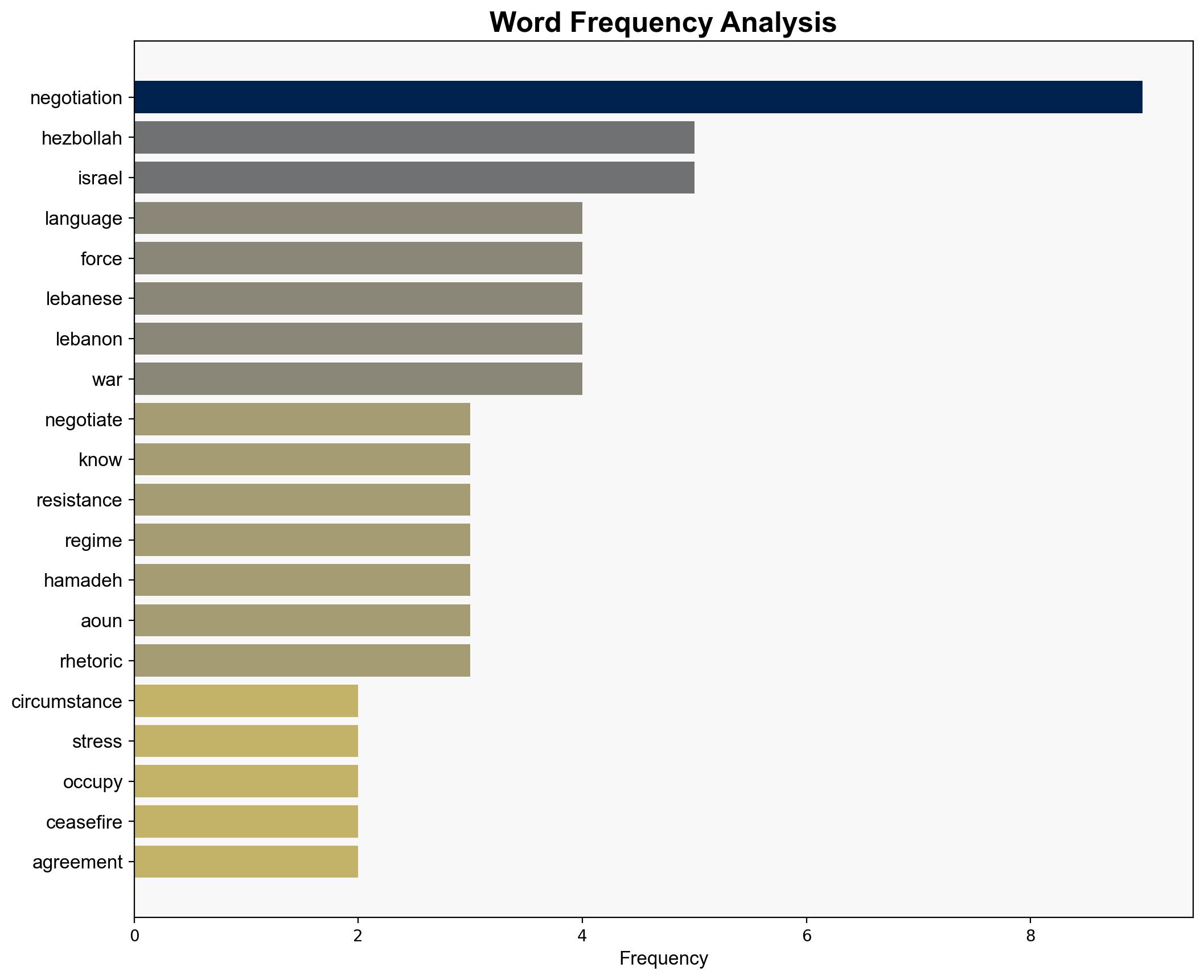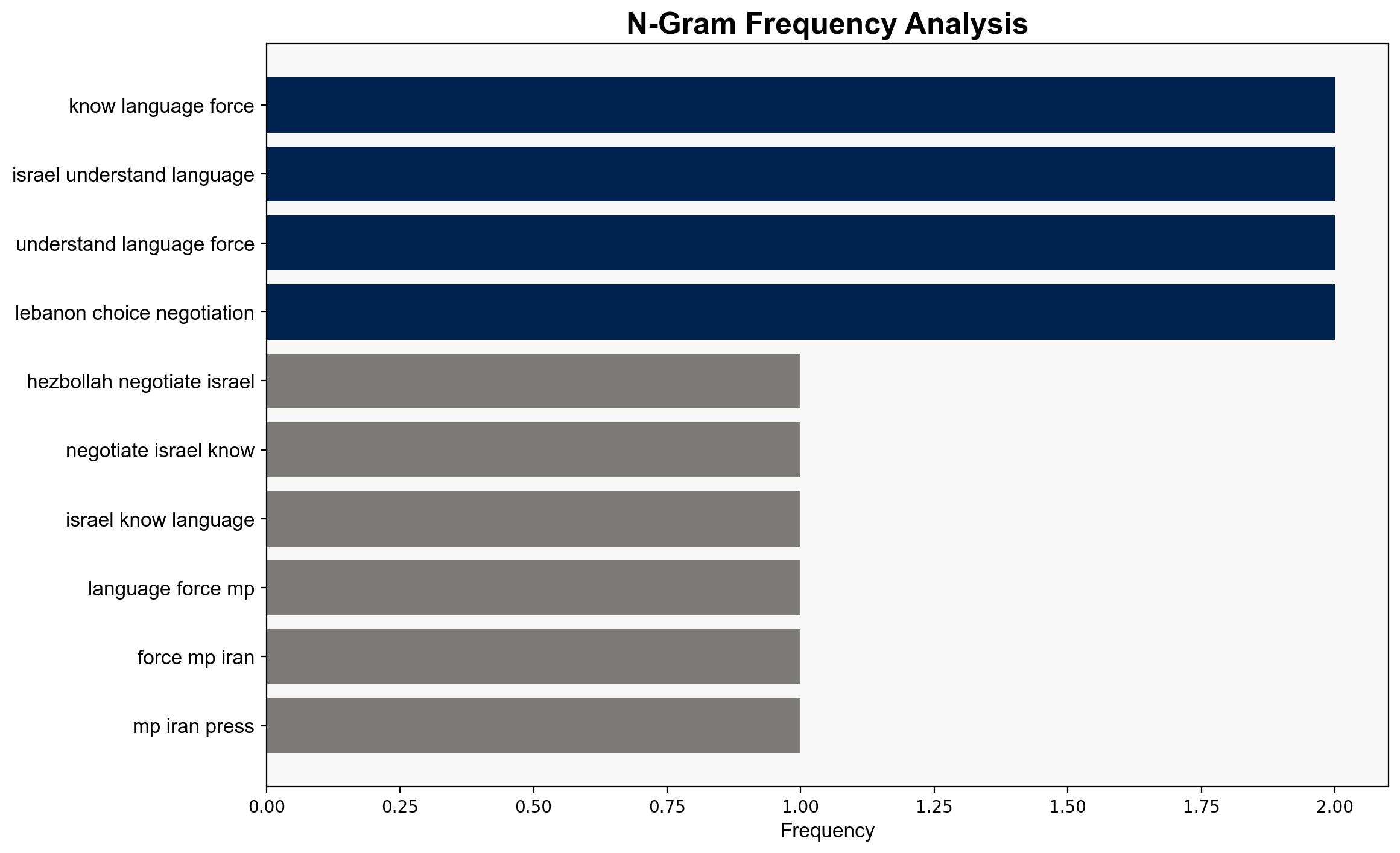Hezbollah will never negotiate with Israel that only knows language of force MP – Globalsecurity.org
Published on: 2025-11-07
Intelligence Report: Hezbollah will never negotiate with Israel that only knows language of force MP – Globalsecurity.org
1. BLUF (Bottom Line Up Front)
The strategic judgment is that while Hezbollah publicly maintains a stance against direct negotiations with Israel, indirect negotiations through mediators remain a possibility. The most supported hypothesis is that Hezbollah will continue to engage in indirect negotiations under specific conditions. Confidence level: Moderate. Recommended action: Monitor indirect negotiation channels and regional diplomatic engagements for shifts in policy or rhetoric.
2. Competing Hypotheses
1. **Hypothesis A**: Hezbollah will never engage in any form of negotiation with Israel, maintaining a strict stance of resistance.
– **Supporting Evidence**: Public statements by Hezbollah representatives emphasize resistance and the language of force.
– **Contradictory Evidence**: Historical precedents of indirect negotiations, such as ceasefire agreements.
2. **Hypothesis B**: Hezbollah will engage in indirect negotiations with Israel through mediators when it serves strategic interests.
– **Supporting Evidence**: References to past ceasefire agreements and indirect negotiation mechanisms.
– **Contradictory Evidence**: Strong public rhetoric against direct negotiations with Israel.
Using ACH 2.0, Hypothesis B is better supported due to historical precedents and strategic interests in maintaining regional stability.
3. Key Assumptions and Red Flags
– **Assumptions**: Hezbollah’s public rhetoric is primarily for domestic and regional audience consumption, while actual policy may be more pragmatic.
– **Red Flags**: Potential cognitive bias in overemphasizing public statements without considering backchannel communications.
– **Inconsistent Data**: Lack of detailed information on current indirect negotiation efforts or third-party mediation roles.
4. Implications and Strategic Risks
– **Geopolitical Risks**: Continued tension between Hezbollah and Israel could escalate into broader regional conflicts.
– **Economic Risks**: Prolonged instability may affect regional economic activities, particularly in Lebanon.
– **Psychological Risks**: Public rhetoric may harden positions on both sides, reducing flexibility in negotiations.
– **Escalation Scenarios**: Increased military engagements along the border could lead to wider conflict involving regional powers.
5. Recommendations and Outlook
- Enhance intelligence collection on indirect negotiation channels and mediator activities.
- Encourage diplomatic efforts to facilitate dialogue through neutral third parties.
- Scenario Projections:
- Best Case: Successful indirect negotiations lead to a stable ceasefire.
- Worst Case: Breakdown in communication results in military escalation.
- Most Likely: Continued indirect negotiations with periodic tensions.
6. Key Individuals and Entities
– Ihab Hamadeh
– Joseph Aoun
– Nabih Berri
– Nawaf Salam
7. Thematic Tags
national security threats, regional diplomacy, conflict resolution, Middle East stability





